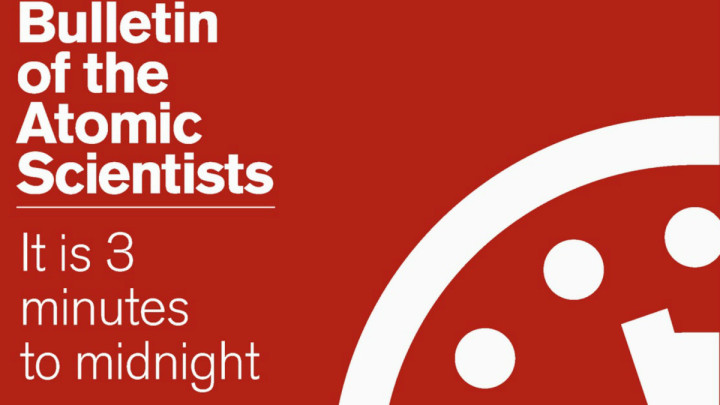Today, the Bulletin of the Atomic Scientists kept the “Doomsday clock” at three minutes to midnight, the closest it has been since the height of the Cold War in 1983. Despite the successful Paris Agreement on Climate, the current nuclear arsenals and their modernisation programmes increase the risk of nuclear war.
The Bulletin’s Science and Security Board notes that decisive action on nuclear weapons is urgently needed. Lawrence Krauss, Chair of the Bulletin’s Board of Sponsors, said that efforts like the humanitarian pledge and a treaty banning nuclear weapons would certainly have a positive impact on the clock.
ICAN shares the concerns of the Bulletin and highlights the urgent need for governments to use the momentum gained from the humanitarian initiative, to negotiate a treaty that prohibits nuclear weapons.
As a response to new evidence about the human and environmental repercussions of a nuclear detonation and a dangerous new arms race fueled by modernization programmes in all nuclear armed states, many governments are rallying behind the “Humanitarian Pledge”, a commitment to prohibit and eliminate nuclear weapons.
“The Bulletin’s warning should be taken seriously by world leaders,” said Beatrice Fihn, Executive Director of the International Campaign to Abolish Nuclear Weapons (ICAN). “The risk of use of nuclear weapons is on the rise. If a nuclear weapon was detonated, the effects would be devastating and the international community would be unable to cope with the aftermath. The status quo is no longer an option.”
Inspired by the main global achievements of 2015, the Sustainable Development Goals and the Paris Agreement, governments have an opportunity to address the pressing issues of nuclear weapons in a UN working group in Geneva, Switzerland this year.
“All responsible states should use the UN nuclear talks that will take place in Geneva, Switzerland in February and May 2015, to start working on a new treaty that – similarly to other weapons of mass destructions – prohibits the possession and use of nuclear weapons” concludes Fihn, “If we don’t take this opportunity to prohibit nuclear weapons, the world might face a humanitarian catastrophe.”










